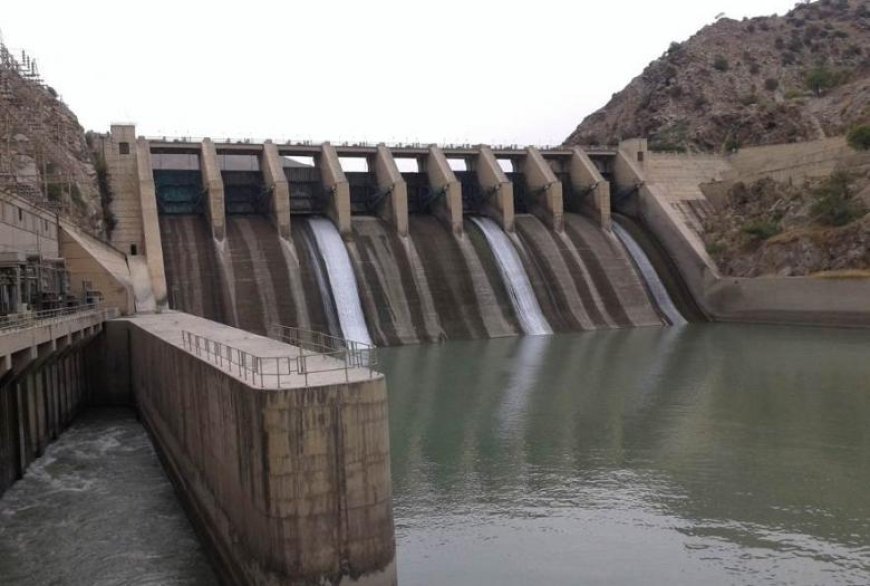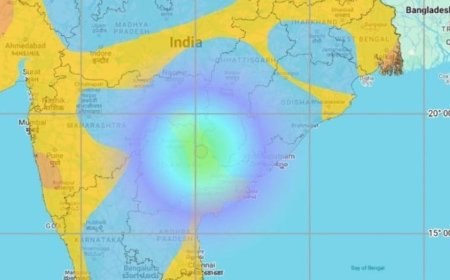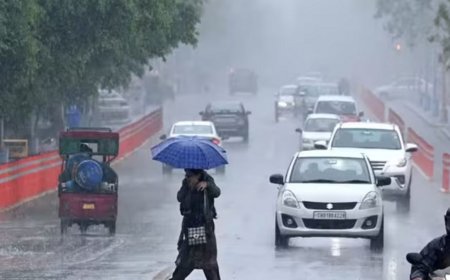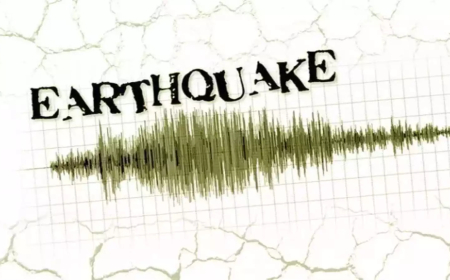Pakistani Expert Warns: India May Release Water into Jhelum, Leading to Floods and Emptying PoK
Pakistani expert Qamar Cheema warns of potential flooding in Pakistan-administered Kashmir (PoK) if India releases water into the Jhelum river without prior notice. He predicts devastating consequences, including widespread floods. Find out more about the implications of this situation.

Pakistani Expert Warns: India May Release Water into Jhelum, Leading to Floods and Emptying PoK
In a startling statement, Pakistani expert Qamar Cheema has raised concerns over India's potential decision to release water into the Jhelum river, warning that such an action could lead to severe flooding in Pakistan-administered Kashmir (PoK). Cheema’s comments have sparked considerable discussion, not only due to the nature of the claim but also because of the possible ramifications for both Pakistan and the region of Kashmir.
This article delves into Cheema’s warning, the context surrounding it, and the potential consequences that could arise if India were to release water into the Jhelum without prior notice. Let’s break down the situation point by point.
1. What Did Qamar Cheema Say About the Water Release?
Qamar Cheema, a well-known Pakistani analyst and expert, has raised alarm about the possibility of India releasing water from its dams into the Jhelum river without informing Pakistan. According to Cheema, if this were to happen, it could result in massive flooding in PoK. This release of water would, in his view, have catastrophic consequences, potentially leaving entire areas of PoK flooded and desolate, thus "emptying" the region.
Cheema's statement reflects his deep concerns about the geopolitical tension between India and Pakistan and the ongoing challenges of managing shared river systems under international agreements. He implied that India might act unilaterally, and this could result in significant environmental and humanitarian issues for Pakistan.
2. The Role of the Jhelum River: A Vital Water Source
The Jhelum river plays a crucial role in the lives of the people in both India and Pakistan, particularly in the regions of Kashmir. Originating from the Indian-administered part of Jammu and Kashmir, the river flows through Pakistan, where it is a significant source of water for irrigation, agriculture, and daily life.
India and Pakistan have had a complex relationship regarding the management of shared water resources. The Indus Waters Treaty, signed in 1960, is meant to govern the distribution of water from the Indus river system, which includes the Jhelum. However, disputes and tensions often arise when one country is seen as taking unilateral actions that could disrupt the water flow to the other.
Cheema’s warning is based on concerns that India may release water from its dams into the Jhelum without informing Pakistan, potentially violating the principles of the Indus Waters Treaty and causing severe flooding in downstream areas, particularly in PoK.
3. The Potential Flooding of Pakistan-administered Kashmir (PoK)
The most alarming part of Cheema's statement is his prediction that flooding could lead to the "emptying" of PoK. If India releases significant amounts of water into the Jhelum river, the sudden surge could overwhelm the river’s banks, causing widespread flooding. Areas in PoK, which are already vulnerable to flooding due to the region’s topography, could suffer immensely.
Heavy floods could lead to displacement of thousands of people, destruction of infrastructure, and a devastating loss of crops and livelihoods. This would not only cause environmental damage but would also create a humanitarian crisis in the region. Local governments would be forced to focus on rescue and relief efforts, further straining resources in an already challenging political and economic environment.
4. The Political Dimensions: India-Pakistan Relations
India and Pakistan have a long-standing history of political and territorial disputes, especially over the region of Kashmir. Both countries claim the entire region of Jammu and Kashmir, but they control different parts of it, with India administering Jammu and Kashmir and Pakistan controlling PoK. This has led to decades of tension and conflict between the two nuclear-armed neighbors.
Cheema’s warning highlights the delicate nature of relations between the two countries. Any unilateral action by India, especially concerning water management, could escalate tensions further and spark more controversy. The release of water into the Jhelum could be seen as a political move, potentially used to exert pressure on Pakistan in the ongoing dispute over Kashmir.
Pakistan could interpret such an action as an attempt to manipulate the region’s resources to India’s advantage, particularly since the Jhelum river is a vital lifeline for the people of PoK. If India were to act without prior consultation, it could fuel anti-India sentiment and further deteriorate relations.
5. The Importance of the Indus Waters Treaty
The Indus Waters Treaty (IWT), which was signed in 1960, governs the distribution of the water of the Indus River system between India and Pakistan. The treaty allocates the waters of six rivers—Jhelum, Chenab, and Ravi, among others—between the two countries. The IWT has, in many ways, stood as a pillar of stability, ensuring that both countries have access to the waters they need for agriculture, drinking, and other purposes.
However, the treaty has often been under strain, especially when political tensions flare up. According to the treaty’s terms, India has the right to construct dams on the rivers, but it is supposed to provide advance information to Pakistan about any major developments that could affect water flow. A breach of this protocol, such as India releasing water without prior notification, would violate the IWT and could result in diplomatic disputes.
Cheema’s statement suggests that India may disregard these diplomatic and legal agreements, potentially leading to a water crisis in PoK and igniting further conflict between the two countries.
6. Environmental and Humanitarian Impact
If the water release does occur without warning, the environmental and humanitarian impact would be profound. Floods in PoK could lead to loss of life, destruction of property, and displacement of entire communities. The region, which already suffers from infrastructure challenges, could face even greater difficulties in managing the crisis. The sudden influx of water could overwhelm the existing flood management systems, leading to widespread devastation.
Additionally, the long-term consequences of such flooding would include damage to agriculture, which is a primary source of livelihood for many people in PoK. Crops would be washed away, leaving farmers without income, while the destruction of roads and bridges would further isolate communities, making it difficult for them to receive aid or support.
7. What Could This Mean for the Future of Kashmir?
Qamar Cheema’s warning carries significant implications for the future of Kashmir, particularly in the context of Indo-Pakistani relations. If India were to act unilaterally, it could alter the delicate balance of the Kashmir dispute, where water resources are an important but often overlooked factor.
For Pakistan, the management of water resources is a critical issue, and the potential for India to disrupt the flow of water could have severe consequences not just for PoK but for the entire region of Pakistan. In an already volatile situation, any significant change in the water flow could provoke greater tensions, leading to further instability.
The future of Kashmir could be shaped by how both India and Pakistan manage not only territorial disputes but also shared resources like water. Cooperation on such matters, guided by legal frameworks like the IWT, could provide a foundation for more stable and peaceful relations.
8. Conclusion: The Need for Cooperation and Transparency
Qamar Cheema’s warning underscores the importance of cooperation and transparency between India and Pakistan, particularly when it comes to managing shared resources like the Jhelum river. Both countries must work within the framework of the Indus Waters Treaty to ensure that actions taken by either party do not lead to unintended consequences, such as flooding and humanitarian crises.
While the situation remains tense, it is clear that collaboration is crucial to avoid further escalation. India and Pakistan must prioritize dialogue and transparency, not only to protect the interests of the people living in Kashmir and PoK but also to safeguard regional stability.
What's Your Reaction?






































































